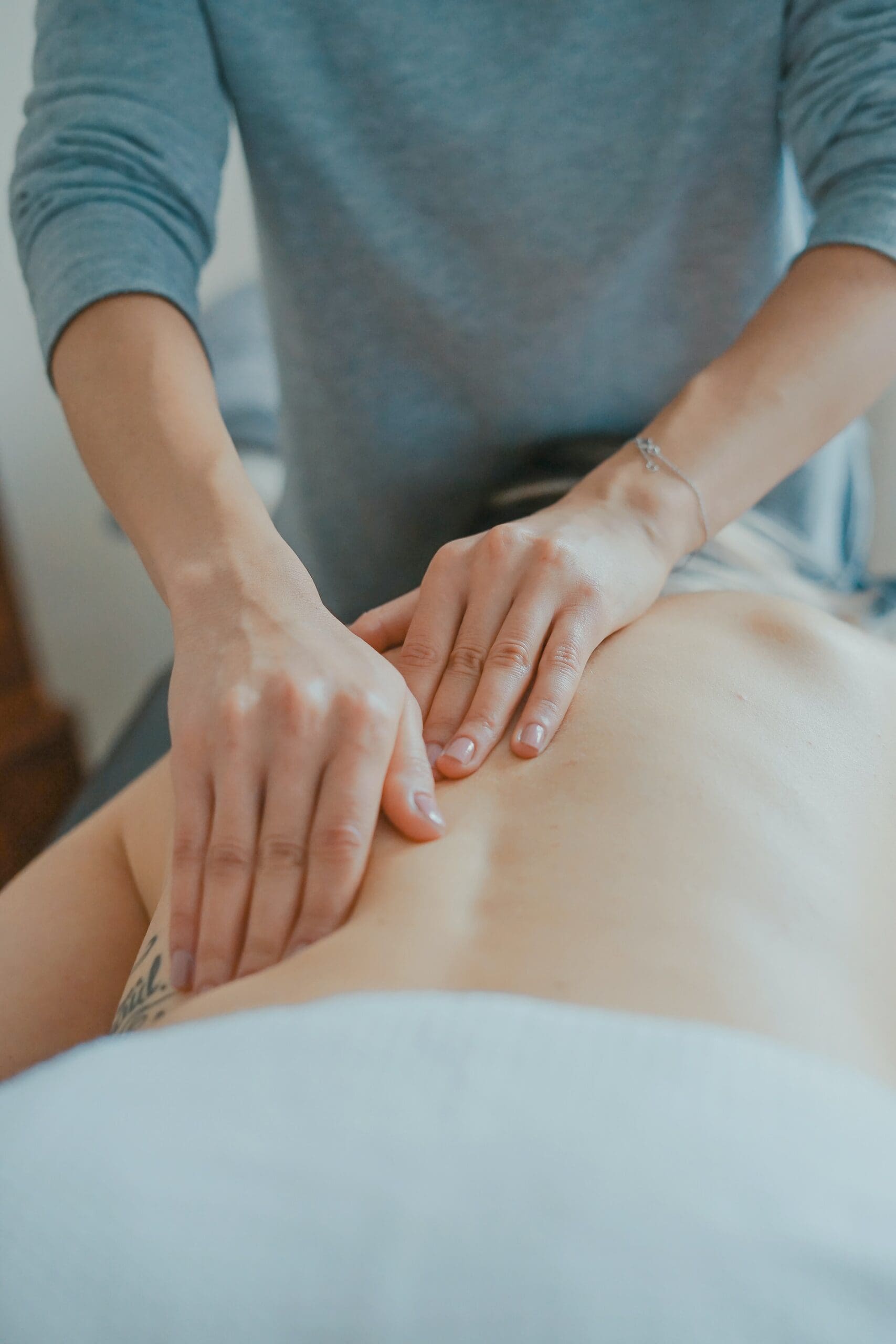When you first notice clicking in your shoulder, you might be worried, even if you don’t feel any shoulder pain. Many people experience this kind of clicking, especially during certain movements like lifting their arms or doing pushups. In many cases, this clicking is harmless. However, shoulder clicking with no pain can sometimes be a sign of an issue that needs attention.
So, when should you be worried about your shoulder clicking? Understanding why your shoulder is clicking is essential to answering this question. This isn’t always easy, though. As Harvard Health says, there’s no one sound unique to a particular shoulder problem, which can make it hard to know what your shoulder clicking means. Identifying other signs and symptoms can provide more context around your shoulder clicking and may help a treatment provider identify the cause of the clicking.
Why is your shoulder clicking with no pain?
There are several reasons your shoulder might click or pop when you move it. Here are a few common reasons for shoulder clicking:
- Gas bubbles in the joint — Just like your knuckles, small pockets of air can form in your shoulder and pop when you move. This is usually harmless.
- Tendon movement — As your shoulder moves, tendons may rub or snap over bony areas. This can feel or sound like a pop.
- Muscle imbalances — Weak or tight muscles can cause abnormal movement in the shoulder, leading to clicking.
- Shoulder instability — If your shoulder joint moves too much or slips out of place slightly, it can cause a clicking sensation.
- Labral issues — The labrum is a piece of cartilage that helps stabilize the shoulder. Tears or damage to this area can cause clicking that may not always be accompanied by pain at first.
Some of these causes are minor. If clicking continues or gets worse, however, it may lead to future pain or injury. This is why early intervention is important.
When to be concerned about your shoulder clicking (even if it doesn’t hurt)
- Your clicking happens more often or gets louder — If your shoulder clicks every time you move it, or if the clicking gets louder, it may be a sign of unhealthy movement in the joint. This could mean your muscles or tendons aren’t working the way they should, which may lead to wear and tear over time. A physical therapist can evaluate how your shoulder moves and help improve your strength and alignment. This can reduce abnormal movement and stop the clicking before it causes bigger problems.
- You notice weakness or stiffness — Clicking combined with even mild weakness or stiffness may be a red flag. These symptoms could mean that a tendon, muscle or the shoulder joint itself isn’t working properly. While you may not feel pain now, weakness and stiffness may increase your risk of future injury. Your physical therapist can help restore shoulder strength and flexibility with targeted exercises. This support can also reduce your chance of developing a painful condition later.
- Your clicking started after an injury — Did your shoulder start clicking after a fall, sports accident or other injury? If so, it’s important to get it checked. A clicking shoulder after injury may be caused by a minor tear, shoulder instability or joint irritation. Ignoring these signs may lead to delayed healing or future joint damage. A physical therapist can examine the area, test your range of motion and recommend a safe plan for recovery.
- You hear clicking during repetitive motions — If your shoulder clicks when you reach overhead or repeat certain motions, it may be due to poor mechanics or posture. Over time, this kind of movement can strain the shoulder and cause tendinitis or impingement. A physical therapist can observe how you move, identify what’s causing the clicking and correct your technique. They can also guide you through safe exercises to reduce stress on your shoulder during daily or athletic activities.
- You use your shoulder for intensive daily activities — If you’re very physically active, clicking in your shoulder should not be ignored. Repeated motion through a joint that’s not moving smoothly can lead to inflammation or even tissue damage. Physical therapy can help you keep doing what you love without risking long-term problems. Your physical therapist can help ensure that your shoulder is moving properly and that your muscles are supporting the joint correctly.
Forever Fit can help identify and address the cause behind your shoulder clicking
If your shoulder clicks once in a while and everything works as usual, you may not need treatment. However, if your shoulder clicking continues to persist and has come with other symptoms, getting an expert assessment can be an important step.
Forever Fit offers expert care to help you move better, feel stronger and stay ahead of injury. We’ll help you find the source of your shoulder clicking and create a plan to improve your movement and protect your long-term joint health.
Don’t wait for pain to get help. Contact us today to schedule an initial appointment and take the next steps toward a healthier shoulder.

